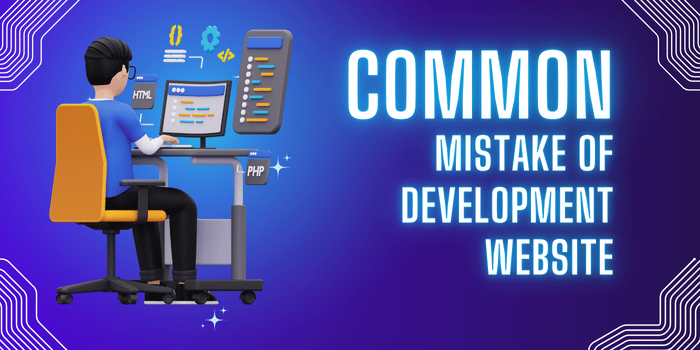Key Mistakes to Avoid in Website Development
Creating a website for your business or personal project is an exciting endeavor, but it’s easy to make mistakes that can hinder its success. Whether you’re a seasoned developer or a beginner, avoiding these common pitfalls will help you create a more efficient, user-friendly, and successful website.
1. Neglecting Mobile Responsiveness

In today’s digital world, more people are browsing the web on their mobile devices than ever before. Failing to ensure your website is mobile-responsive can lead to poor user experiences, high bounce rates, and ultimately lost business. Be sure to design and test your site to work seamlessly across all devices and screen sizes.
2. Overcomplicating the Design

While it’s tempting to include flashy graphics, intricate animations, and excessive features, a cluttered website can overwhelm visitors. Simplicity is key. Prioritize clean design with easy navigation and a focus on the essential content. Users should be able to find what they need quickly without distractions.
3. Ignoring Website Speed

Page loading time is crucial for both user experience and SEO. Slow-loading websites can lead to frustrated users and higher abandonment rates. Make sure to optimize images, minimize HTTP requests, and consider using content delivery networks (CDNs) to speed up load times. Google also factors page speed into search rankings, so faster websites perform better in search results.
4. Failing to Optimize for SEO

A beautiful website is useless if no one can find it. Search engine optimization (SEO) is essential for ranking well on search engines and driving organic traffic. Use keyword-rich titles, descriptions, and tags, and ensure your site’s content is optimized for both search engines and users. Don’t forget to include alt text for images and a sitemap for easier indexing.
5. Overlooking Website Security

Website security is often overlooked, but it’s vital in protecting both your data and your users. Without proper security measures like SSL certificates, your site could be vulnerable to cyberattacks, data breaches, and hacking attempts. Make sure your website is equipped with up-to-date security protocols to protect sensitive information and build trust with visitors.
Conclusion
By avoiding these common website development mistakes, you’ll be on your way to creating a successful, user-friendly, and secure site that attracts and retains visitors. Whether you’re building your first site or refining an existing one, focusing on mobile responsiveness, simplicity, speed, SEO, and security will ensure a better experience for both you and your users.
Frequently Asked Questions (FAQs) About Website Development Mistakes
Why is mobile responsiveness important in website development?
Mobile responsiveness ensures your website functions well on all devices, providing a better user experience and improving your search engine ranking.
How can I improve my website’s loading speed?
Optimize images, reduce the number of HTTP requests, use caching, and implement content delivery networks (CDNs) to speed up your site.
What is SEO and why does it matter for my website?
SEO (Search Engine Optimization) helps your site rank higher in search results, driving more traffic. It involves optimizing content, keywords, and site structure.
What security measures should I take for my website?
Install an SSL certificate, keep your software updated, use strong passwords, and regularly back up your website to protect it from cyber threats.
How can I simplify my website design?
Focus on clear navigation, a minimalist layout, and only essential content. Avoid unnecessary graphics or elements that could distract users.

